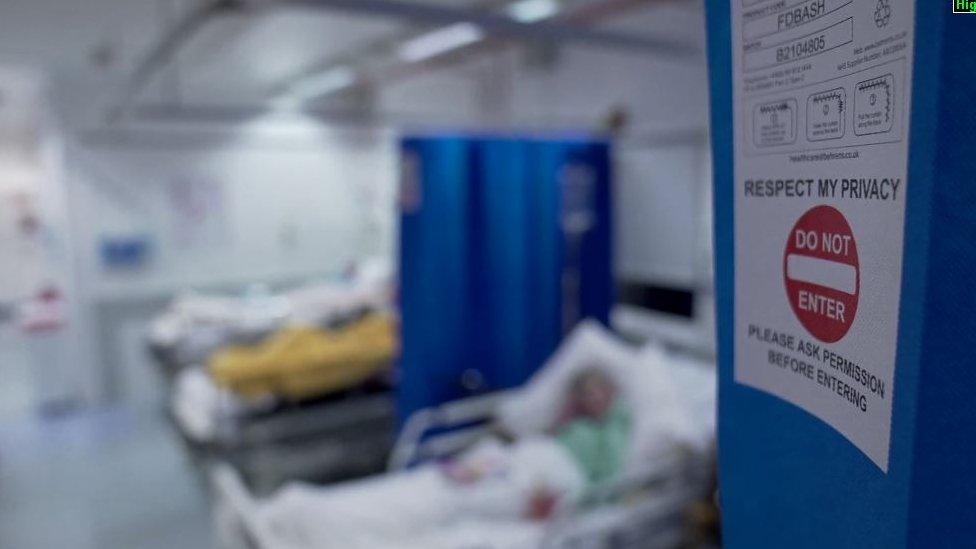Covid-19: Younger patients receiving end-of-life care at NI hospices
- Published
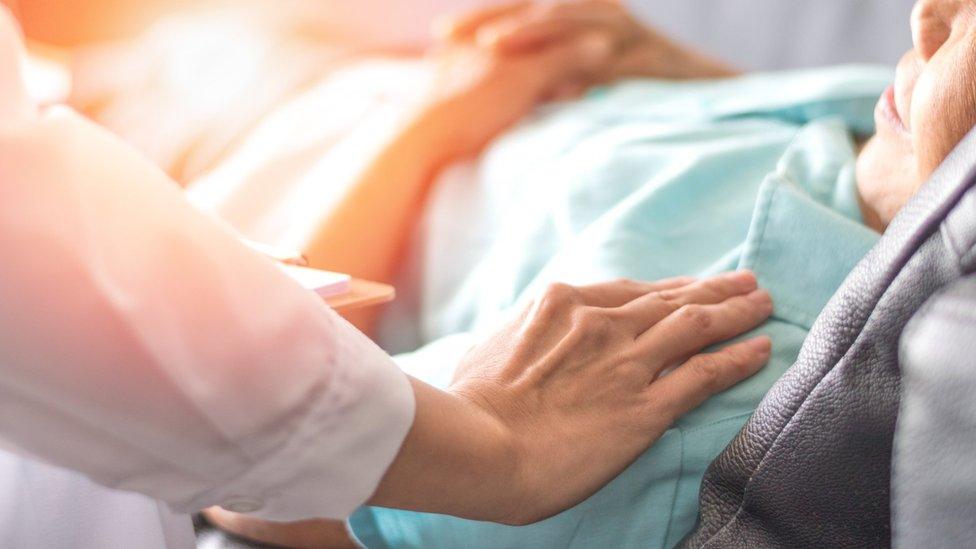
Northern Ireland's hospices are treating patients who are younger, and sicker, for end-of-life care as Covid-19 pressures continue.
The Foyle Hospice in Londonderry has cared for patients in their 30s who have died in the past six months.
Michelle Kosky offers grief counselling at the hospice for children from the age of four to 16.
"I have definitely noticed an increase of younger parents coming through for end-of-life care," she said.
"I've been involved with quite a few younger parents who have terminal illnesses - and very young children who are about to lose a parent."
'Where has mum gone?'
Restrictions on hospice visiting and funeral attendance have also been damaging for children preparing to say their final goodbyes, said Ms Kosky.
"Pre-bereavement, we only have one chance to get it right and have those difficult conversations: 'Should my child go to the funeral, should my child go to the wake?'
"It is a very important part of their grieving process," she added.
"If you think of a five-year-old and mum has died, where has mum gone?
"How do they concrete the fact that mum has gone because children at five don't realise that death is irreversible.
"So attending the wake, and seeing mum, and knowing that mum was in the coffin and mum has been buried, it's important in the storytelling for children, and it's important in the grieving process."
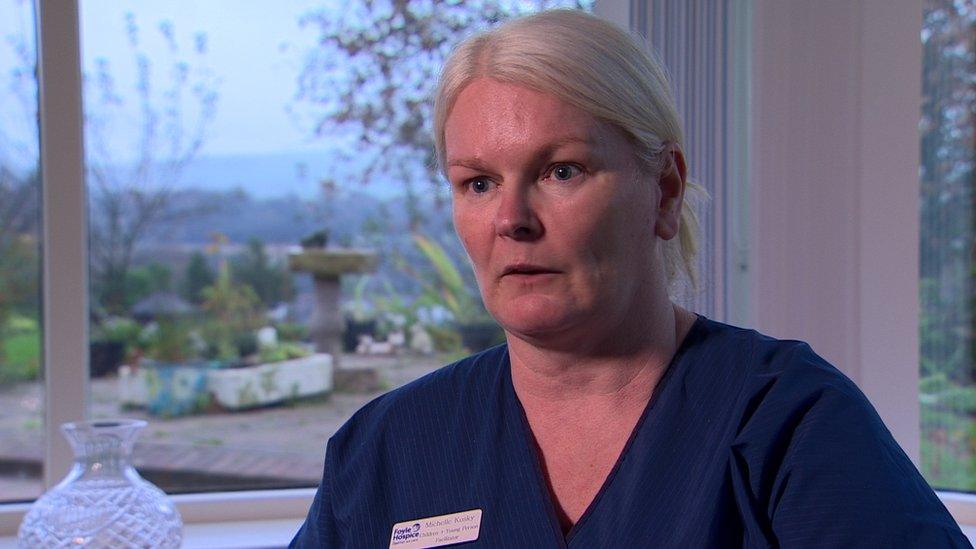
Michelle Kosky offers grief counselling at the hospice for children aged four to 16
Ms Kosky became involved in counselling at the hospice after suffering her own loss: When her husband died in a road accident, she had to tell their children.
Recent deaths at the hospice had been difficult for staff, she said.
"We can all relate because maybe we have a sister in her 30s, or maybe for some of the nurses they're the same age and it does make you think.
"I remember identifying with a family and wondering how they were going to tell their children, and then two weeks later I was telling my own.
"Losing someone you love is the hardest thing that we're ever going to do. But losing someone young just doesn't seem right, does it?"
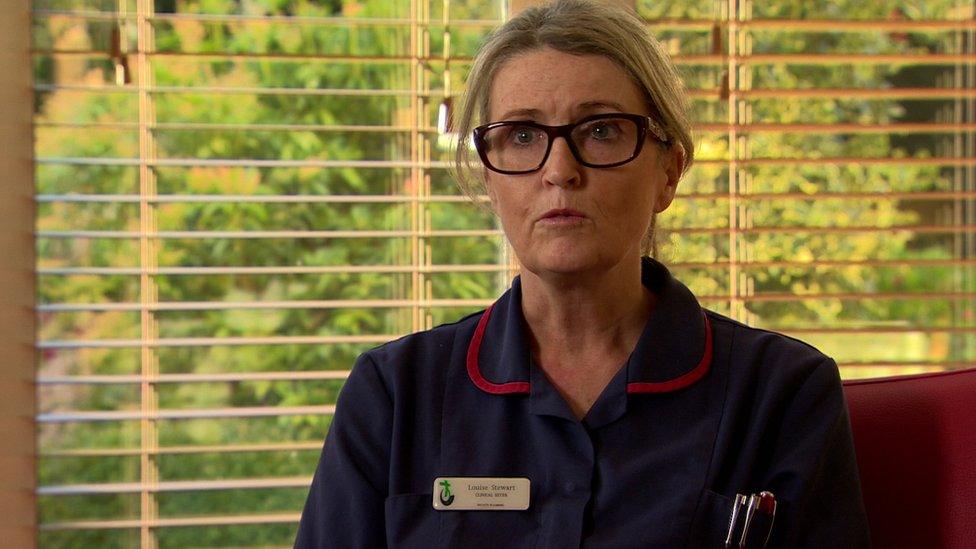
Nurse Louise Stewart said patients are waiting much longer to come into hospital because of visiting restrictions
At the Southern Area Hospice, it is a similar story.
Nurse Louise Stewart, who has worked at the hospice in Newry for 33 years, said working through the pandemic has been difficult for everyone.
"When you were holding the patient's hand, it was through a glove so it wasn't skin-on-skin which loses some of the intimacy which at that stage of a journey is important.
"With relatives, you weren't able to hug them through a difficult time," she said.
'More ill by the time they come in'
Visiting restrictions were also tough to manage.
"We went down to one person being allowed for one hour of the day," she said. "At this stage in a person's life this was a very difficult thing.
"Patients are waiting much longer to come into hospital because of the visiting restrictions, they don't want to be away from their families.
"Families are trying to hold on to their loved ones as long as possible at home.
"So by the time they come in, they're maybe much more ill, their needs are much more complex.
"Lots of very rapid diagnosis, people very recently diagnosed coming in to us because they haven't been able to get appointments and things like that, and a much younger age group of people as well.
"It does have an impact. You look and you find out that they're only been diagnosed four, five, six weeks ago.
"That's a complete turnaround on what we would have seen in the past.
"You're seeing people come in who are younger than you.
"We're mothers, grannies, aunts, uncles - so it has an impact.
"There is the concept of living well and also the concept of dying well.
"So for us, if somebody dies, it's not always a bad thing, because if you've helped somebody to die well, that's our job well done for a family."
'Seems to be getting worse'
Belfast's Marie Curie hospice has also admitted more younger patients with very complicated needs in recent months, which Nurse Rosemary Russell said was unusual.
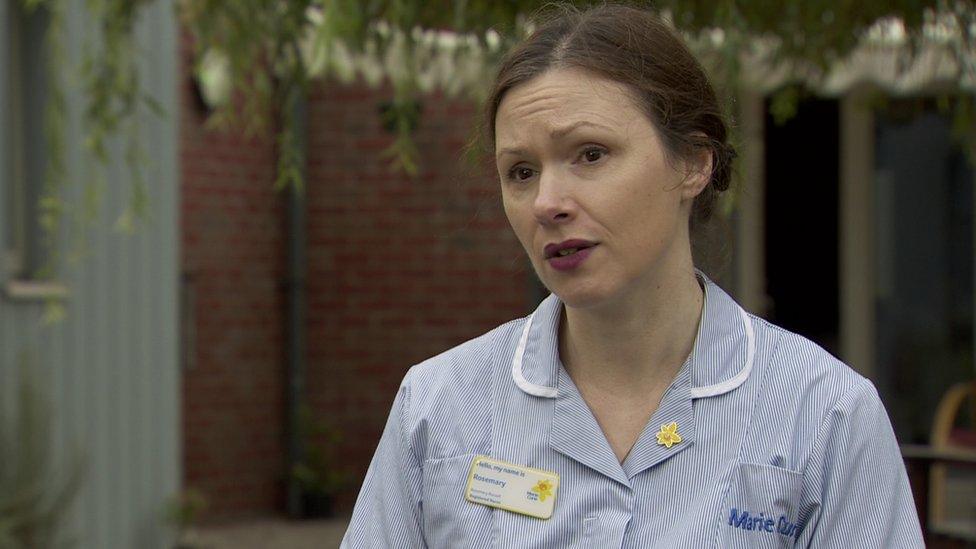
Nurse Rosemary Russell says it is unusual to have so many younger patients with complicated needs
"The teams are really stretched, not just at Marie Curie, we work so closely with the district nurses and they are stretched in a way I have never experienced before," she said.
"Carers are incredibly stretched.
"It just seems to be getting worse, right across Northern Ireland,
"But we're all doing our best. We might be a bit fraught at times, but we are trying."
'I want people to live until they die'
Consultant Dr Matthew Doré said the Northern Ireland hospice was not the place of sadness or despair that some people might think - quite the opposite, in fact.
"It's somewhere which is happy and peaceful - but of course there is meaning to this place," he said.
"I take a patient and they've got a life story, a book.
"Palliative care is the last chapter or the last few chapters of that book.
"We take that story and try to tie it all together and bring it to a good and natural conclusion.
"I want people to live until they die."
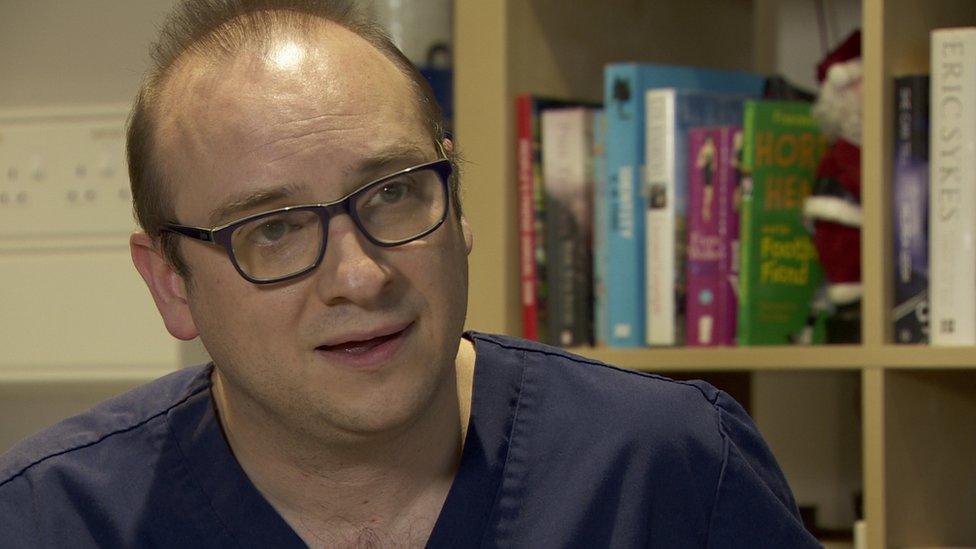
Dr Matthew Doré says the toughest part of the pandemic has been people's sense of separation
But helping to write those final chapters had been more difficult during the pandemic, he added.
"Everything has changed," said Dr Doré.
The toughest part of the pandemic had been people's sense of isolation and separation, he added.
"I have never been so heartbroken, refusing people coming in.
"As the health service struggles, we are seeing more people who are fearful, more people who are isolated, more people who are trying to cope with uncertainty.
"And we're seeing presentations later, so they are sicker.
"It is a perfect storm, and you can't discount Covid from it all.
"It has uncovered elements of difficulty within the health service which were there before Covid as well,"
"We have, unfortunately, the longest waiting lists in the UK.
There are two groups who are struggling most due to the pandemic - those who were dying of Covid, and those with other illnesses whose treatment was being delayed.
"The hospitals are full, all the investigations and surgeries and clinics have been postponed, so there has been a delay in the whole system - and innately that will have an element of harm to it."
You can watch Sara's full report on Newsline on BBC One Northern Ireland at 18:30 GMT and afterwards on the iPlayer.
Related topics
- Published4 August 2021
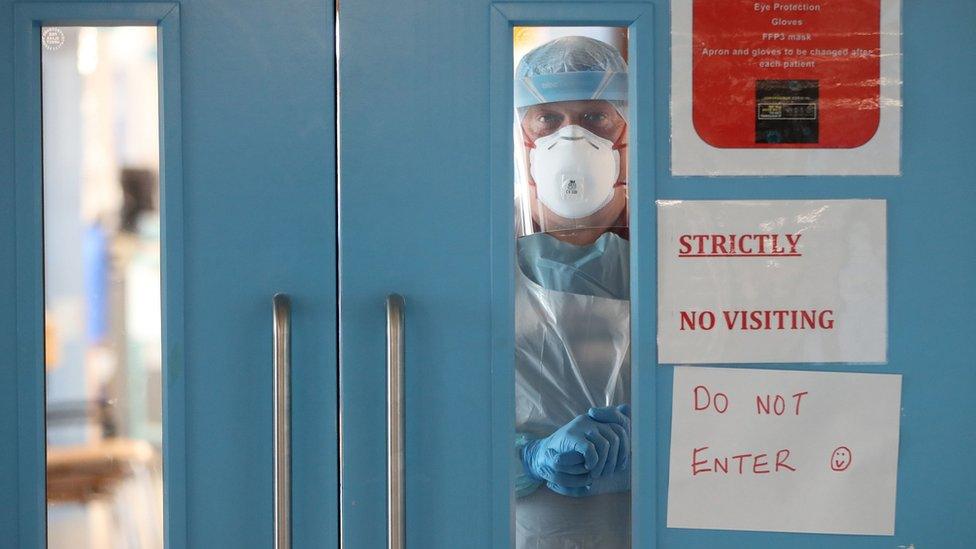
- Published20 October 2021
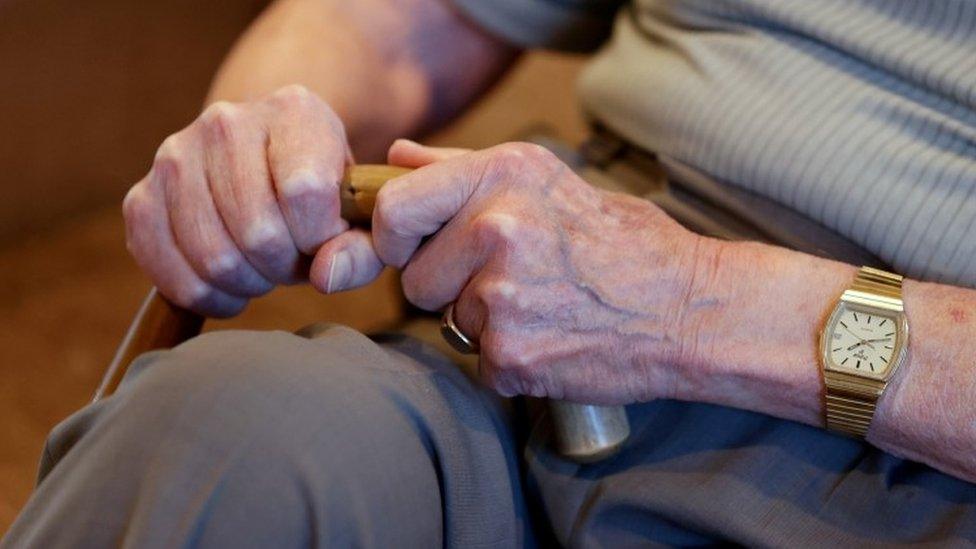
- Published28 November 2021
